
Marcel Carné
Nacimiento : 1906-08-18, Paris, France
Muerte : 1996-10-31
Historia
Director de cine francés. Influido por la estética de Max Reinhardt, que hacía más hincapié en la sutileza psicológica que en el dramatismo grandilocuente, también se interesó por el estilo expresionista de algunos directores alemanes como F. W. Murnau y Josef von Sternberg. Sin embargo, su estilo personal característico, el realismo poético, fue siempre deudor de su propia sensibilidad poética, su gusto por el amor no correspondido y el mundo de las clases trabajadoras. Nació en París el 18 de agosto de 1909. Después de trabajar como periodista, llegó a ser ayudante de Jacques Feyder y de René Clair. Con este último colaboró en la realización de Bajo los techos de París (1930), el primer largometraje destacado de Clair, trabajo que marcó el comienzo de una larga y estrecha colaboración con el poeta Jacques Prévert, quien escribió casi todos los guiones más importantes de Carné y cuyo nombre quedaría ligado al del director en la historia del cine. El origen periodístico de Carné se refleja en el estilo de sus primeras películas, en las que trató de retratar la vida sencilla de la gente corriente en su ambiente cotidiano. Sus obras principales son: Un drama singular (1937); El muelle de las brumas (1938), que provocó violentas críticas del gobierno de Vichy, al responsabilizarlo, junto a otros artistas, del clima moral que desencadenó la derrota de Francia ante los nazis; Amanece (1939); Les visiteurs du soir (1942) y Les enfants du paradis (Los niños del paraíso, 1945), un admirable hito del cine de posguerra (la película más cara hasta aquel momento del cine francés), interpretada por un reparto excepcional. Este hecho se repetiría en todas sus películas de este periodo, en las que contó con los mejores actores y actrices franceses del momento: Jean Gabin, Arletty, Louis Jouvet, Miche Simon o Pierre Brasseur. Después de la guerra, sometido a un tribunal de depuración y posteriormente atacado con dureza por los jóvenes cineastas de la nouvelle vague, Marcel Carné no alcanzó la altura de sus obras anteriores y se vio obligado a retirarse progresivamente tras realizar algunas películas destacables, como Teresa Raquin (1953) o El aire de París (1954). Su última realización fue La merveilleuse visite (1974). Su resentimiento por estos ataques y por el trato injusto hacia su persona y su obra se refleja en su autobiografía, La vie à belles dents (1982). En 1977 se le concedió el Gran Premio del Festival de Cannes. También recibió la Legión de Honor de la República Francesa, reconocimiento al que se unió el de Caballero de las Artes y las Letras.

Self (archive footage)
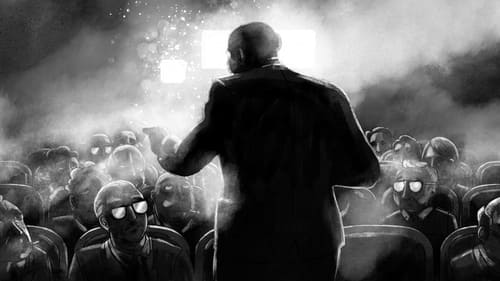
Self (archive footage)
Paris, 1940. German occupation forces create a new film production company, Continental, and put Alfred Greven – producer, cinephile, and opportunistic businessman – in charge. During the occupation, under Joseph Goebbels’s orders, Greven hires the best artists and technicians of French cinema to produce successful, highly entertaining films, which are also strategically devoid of propaganda. Simultaneously, he takes advantage of the confiscation of Jewish property to purchase film theaters, studios and laboratories, in order to control the whole production line. His goal: to create a European Hollywood. Among the thirty feature films thus produced under the auspices of Continental, several are, to this day, considered classics of French cinema.

Self
An interview of French film director Marcel Carné by Didier Decoin

Director
The basilica of Monreale, near Palermo in Sicily, and its thousands of mosaics that tell scenes from the Bible.
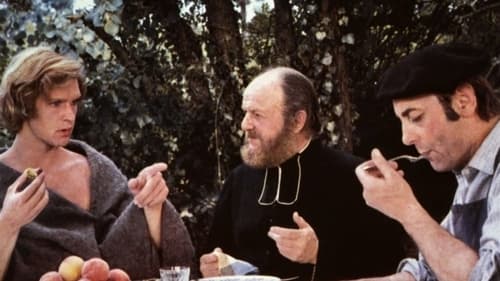
Screenplay
One morning, the rector of a small French village comes across a young man, lying unclothed and unconscious on a deserted beach. Intrigued, the rector has the young man carried back to his home. When he awakes the stranger calmly identifies himself as Jean, an angel who has just arrived on Earth. Naturally, the rector doesn’t believe this, but decides to humour the young man. At first, Jean’s arrival in the village causes no upset. He is a harmless soul, full of good intentions and capable of only the kindest deeds. But then the villagers grow wary of him, and this wariness turns to outright hostility when Jean unwittingly causes an accident...

Director
One morning, the rector of a small French village comes across a young man, lying unclothed and unconscious on a deserted beach. Intrigued, the rector has the young man carried back to his home. When he awakes the stranger calmly identifies himself as Jean, an angel who has just arrived on Earth. Naturally, the rector doesn’t believe this, but decides to humour the young man. At first, Jean’s arrival in the village causes no upset. He is a harmless soul, full of good intentions and capable of only the kindest deeds. But then the villagers grow wary of him, and this wariness turns to outright hostility when Jean unwittingly causes an accident...
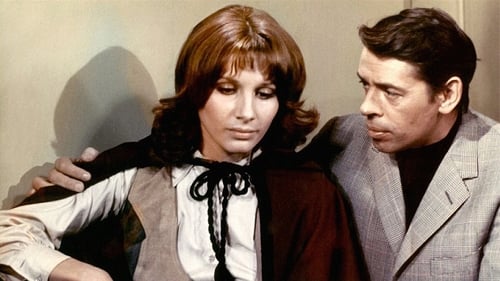
Screenplay
A judge investigating police corruption finds that the deeper he digs, the more roadblocks he finds.

Director
A judge investigating police corruption finds that the deeper he digs, the more roadblocks he finds.
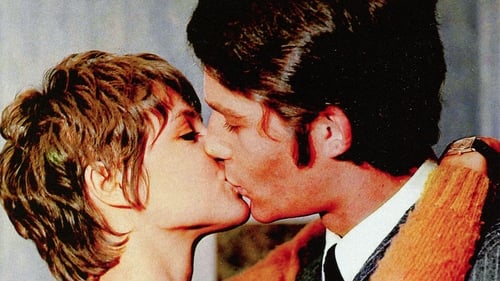
Writer
La princesa Linzani mantiene a un joven quien, por otra parte, sale con una chica de su edad, que a pesar de su actitud atrevida nunca ha tenido un amante.

Director
La princesa Linzani mantiene a un joven quien, por otra parte, sale con una chica de su edad, que a pesar de su actitud atrevida nunca ha tenido un amante.

Self
Documentary about the making of Marcel Carne's 1945 film Children of Paradise (France), interviewing the director, the actors and production designer, as well as other French directors.
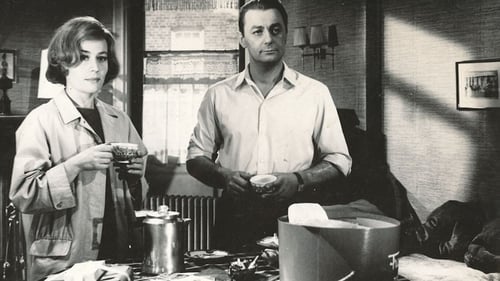
Writer
Después de ser abandonado por su mujer, un actor fracasado conoce en Nueva York a una ex condesa, y entre ambos surge una relación sentimental.

Director
Después de ser abandonado por su mujer, un actor fracasado conoce en Nueva York a una ex condesa, y entre ambos surge una relación sentimental.
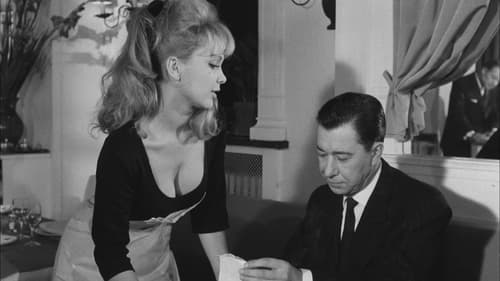
Screenplay
In a building close to the Place de la Contrescarpe in Paris, a tale of criss‑crossings in turn romantic, gourmet, interested or mystical, between an Italian gigolo and a nightclub hostess, a family of butchers and an apprentice rocker, a mystic tailor, a writer sending himself telegrams, an alert paralytic woman, a thoughtful concierge, a bird breeder and a just‑out‑of‑jail hooligan. Little by little each one discovers each other’s more or less troubled history… when a mysterious death introduces the Police within this huis clos, hastens disclosure of well‑kept secrets and ruffle this little World.

Director
In a building close to the Place de la Contrescarpe in Paris, a tale of criss‑crossings in turn romantic, gourmet, interested or mystical, between an Italian gigolo and a nightclub hostess, a family of butchers and an apprentice rocker, a mystic tailor, a writer sending himself telegrams, an alert paralytic woman, a thoughtful concierge, a bird breeder and a just‑out‑of‑jail hooligan. Little by little each one discovers each other’s more or less troubled history… when a mysterious death introduces the Police within this huis clos, hastens disclosure of well‑kept secrets and ruffle this little World.
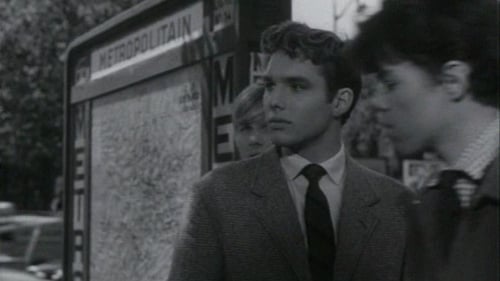
Writer
Director Marcel Carné's 1960 look at juvenile delinquency, a pressing social issue in France at that time. Based on "Tomboy", an American pot-boiler novel by Hal Elison.

Director
Director Marcel Carné's 1960 look at juvenile delinquency, a pressing social issue in France at that time. Based on "Tomboy", an American pot-boiler novel by Hal Elison.

Adaptation
Bob Letellier, a good looking rich kid who studies science, makes the acquaintance of Alain, a cynical and immoral young man. The latter introduces him to the existentialist circles of Saint-Germain-des-Prés. Bob is invited to a party and becomes Clo's lover, a rich heiress.

Scenario Writer
Bob Letellier, a good looking rich kid who studies science, makes the acquaintance of Alain, a cynical and immoral young man. The latter introduces him to the existentialist circles of Saint-Germain-des-Prés. Bob is invited to a party and becomes Clo's lover, a rich heiress.

Director
Bob Letellier, a good looking rich kid who studies science, makes the acquaintance of Alain, a cynical and immoral young man. The latter introduces him to the existentialist circles of Saint-Germain-des-Prés. Bob is invited to a party and becomes Clo's lover, a rich heiress.
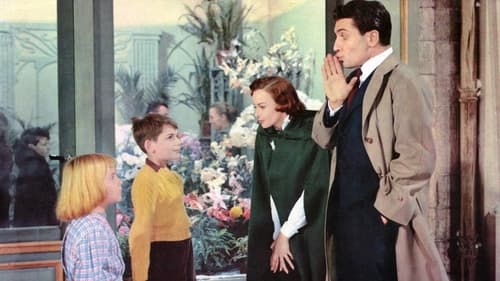
Writer
One Christmas Eve, a carefree young man, Eric, arrives in a small provincial town. Here, he meets Julien, a bar pianist who is his exact double. Julien is in love with Marinette, a pretty waitress, but he is too shy to make any romantic overtures. Eric decides to give the course of true love a helping hand by pretending to be Julien. Meanwhile, Eric’s fabulously wealthy uncle has sent his minions out to bring him back home, so that he may celebrate Christmas in the bosom of his family.

Director
One Christmas Eve, a carefree young man, Eric, arrives in a small provincial town. Here, he meets Julien, a bar pianist who is his exact double. Julien is in love with Marinette, a pretty waitress, but he is too shy to make any romantic overtures. Eric decides to give the course of true love a helping hand by pretending to be Julien. Meanwhile, Eric’s fabulously wealthy uncle has sent his minions out to bring him back home, so that he may celebrate Christmas in the bosom of his family.
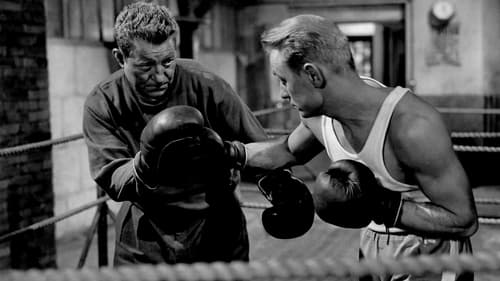
Screenplay
Victor Le Garrec, a former boxer, runs a gym in Paris while dreaming of finding an aspiring champion who will reach the goals he was never able to achieve.

Director
Victor Le Garrec, a former boxer, runs a gym in Paris while dreaming of finding an aspiring champion who will reach the goals he was never able to achieve.
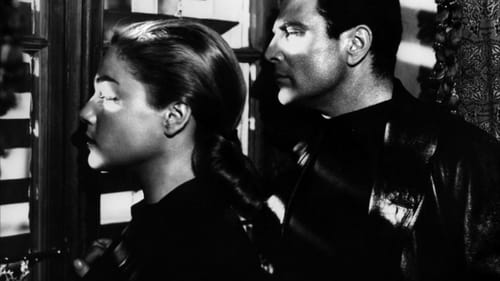
Adaptation
Adaptación de la novela homónima de Émile Zola. Thérèse lleva una vida gris y monótona. Está casada con su primo Camille, que es un hombre de temperamento brusco y dominante, todo lo contrario del hombre apasionado que ella necesita. Por eso, cuando llega el camionero Laurent, consigue seducirla.

Director
Adaptación de la novela homónima de Émile Zola. Thérèse lleva una vida gris y monótona. Está casada con su primo Camille, que es un hombre de temperamento brusco y dominante, todo lo contrario del hombre apasionado que ella necesita. Por eso, cuando llega el camionero Laurent, consigue seducirla.
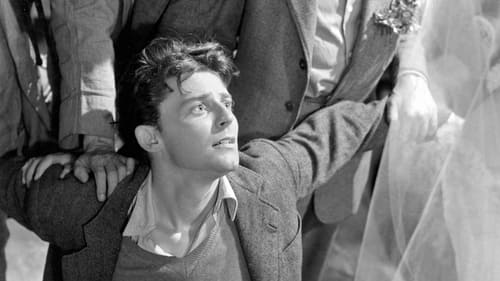
Adaptation
Michel ha robado a su patrón, el señor Bellanger para conseguir esos recursos que le tenían que permitir casarse con Juliette. Una vez encarcelado, mientras duerme en su celda, se despierta y ve que las puertas están abiertas y conducen a un extraño pueblo en el que sus habitantes han perdido su memoria. Ahí vuelve a encontrarse con Juliette, también afectada por ese mal, y parece estar´conforme en casarse con un hombre rico.

Director
Michel ha robado a su patrón, el señor Bellanger para conseguir esos recursos que le tenían que permitir casarse con Juliette. Una vez encarcelado, mientras duerme en su celda, se despierta y ve que las puertas están abiertas y conducen a un extraño pueblo en el que sus habitantes han perdido su memoria. Ahí vuelve a encontrarse con Juliette, también afectada por ese mal, y parece estar´conforme en casarse con un hombre rico.
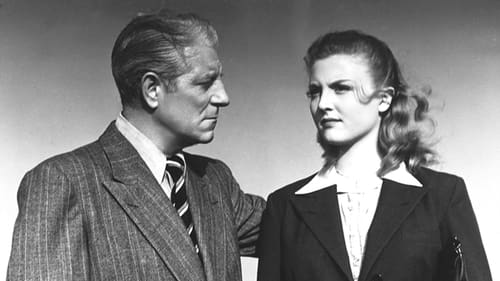
Writer
Henri Chatelard is well in his forties, owns a restaurant and a cinema in the city, and appreciate women. When he meets Marie, a 18ish stronghead who just lost her father in a small fishermen village, it is not clear who is the hunter and who is the prey.

Director
Henri Chatelard is well in his forties, owns a restaurant and a cinema in the city, and appreciate women. When he meets Marie, a 18ish stronghead who just lost her father in a small fishermen village, it is not clear who is the hunter and who is the prey.

Director
Children imprisoned during pre-war France decide to escape.

Director
París, 1945. Tras la liberación de la ciudad por los Aliados, Jean Diego se encuentra con un vagabundo que le predice que se enamorará de una bella mujer, pero que las próximas horas que va a vivir serán dramáticas. La profecía se hace realidad y Jean conoce a Marlou, una joven cuyo matrimonio la hace infeliz.
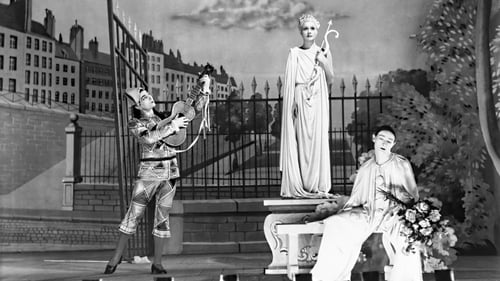
Director
París, 1820. Dos jóvenes artistas, Baptiste Debureau y Frédéric Lemâitre, debutan en el teatro de los Funámbulos y entablan amistad. Un día, Garance, una misteriosa y atractiva mujer, irrumpe en sus vidas. Mientras que el tímido Baptiste no se atreve a declararle su amor, Frédéric la convierte en su amante. Sin embargo, al estar implicada en una serie de crímenes, la mujer desaparece.
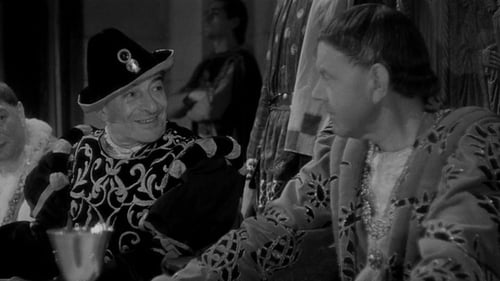
Director
En 1485, el Demonio envía al mundo a dos emisarios, Dominique y Gilles, que se presentan en el castillo del Barón de Hughes, que está celebrando el compromiso de su hija con el caballero Renaud. Como Gilles, en contra de los planes de su Señor, se enamora de la joven, el Diablo acaba presentándose en el castillo adoptando la figura de un viajero.
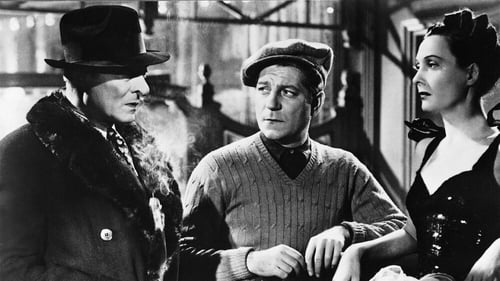
Director
Perseguido por la policía, François (Jean Gabin) se refugia en una casa. Mientras está rodeado, va recordando cómo los conflictivos hechos de los últimos días lo han conducido hasta la apurada situación en la que se encuentra; su pasión por la florista Françoise (Jacqueline Laurent), su compleja relación con la prostituta Clara (Arletty) y el asesinato de Valentin (Jules Berry), un extraño personaje relacionado con ambas mujeres.

Director
En un modesto hotel de un barrio popular de París, Renée (Annabella) y Pierre (Jean-Pierre Aumont), una joven pareja de enamorados, alquilan una habitación para una sola noche. Ambos jóvenes tiene intención de suicidarse: Pierre matará a Renée de un tiro, y luego disparará contra sí mismo. Pero el plan no sale como tenían planeado...
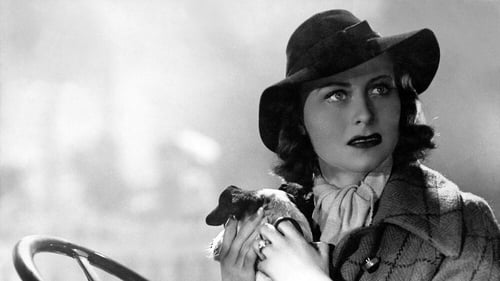
Director
Un desertor del ejército francés llega a Le Havre, una ciudad permanentemente envuelta en la niebla, para huir en barco. Conoce a Nelly en Casa Panamá, un garito del muelle, y simpatizan de inmediato; ella es una joven de diecisiete años tiranizada por su tutor Zabel, un extraño hombre que mantiene tratos con un grupo de jóvenes que juegan a ser mafiosos.
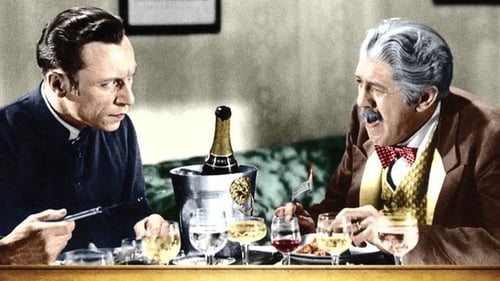
Director
A French farce set in Victorian London where a botanist and his wife get into trouble when they pretend to go missing in order to hide from their sanctimonious cousin - an Anglican bishop who is leading a campaign against such writing.

Director
When her fiancé breaks off their engagement, Danielle leaves London and returns to her mother, Jenny, in Paris. With her business partner Benoît, Jenny runs what appears to be a respectable nightclub – it is in fact a place where wealthy men can buy the favours of attractive young women. Oblivious to her mother's professional and personal life, Danielle meets a handsome young man named Lucien, and falls in love with him – not realising that he is Jenny's lover...

Dialogue
A rich Brazilian, Mendoza, visited Paris in 1900 and was romantically involved with the star of Offenbach's 'La vie parisienne' which was playing at the time. Thirty five years later, he returns with his son and granddaughter, who is engaged to a young Frenchman. But Mendoza's puritanical son forbids the marriage. Mendoza and the actress's friends conspire to change his mind and convert him to 'Parisian life.'

Assistant Director
Flanders, Hispanic Monarchy, 1616. The inhabitants of the small town of Boom are busy organizing the annual local festivities when the arrival of the Duke of Olivares, who rules the country on behalf of the King Philip III of Spain, is announced. While the male citizens cowardly surrender to panic, the brave female citizens decide to become the best hosts the Spaniards can ever meet. (German version of the French film La Kermesse héroïque, 1935.)
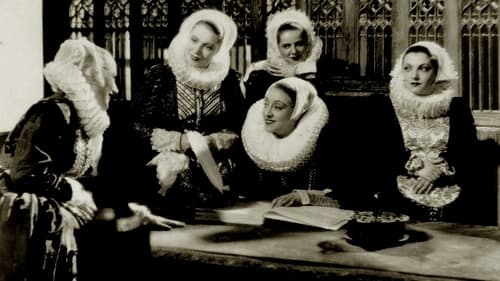
Assistant Director
Flandes, Monarquía Hispánica, 1616. Los habitantes de la pequeña localidad de Boom están muy ocupados organizando las fiestas locales anuales cuando se anuncia la llegada del duque de Olivares, que gobierna el país en nombre del rey Felipe III de España. Mientras los ciudadanos masculinos se rinden cobardemente al pánico, como ratas en un barco que se hunde, las valientes ciudadanas, lideradas por la audaz esposa del burgomaestre, deciden convertirse en las mejores anfitrionas que los españoles hayan conocido nunca.

Director
A short, early travel documentary about Nogent. The film starts with images of trains, buses, and railway tracks, which are juxtaposed to shots of deserted Paris streets, empty factories, and typewriters packed in slipcovers. It is a natural landscape organized by industrial infrastructure and populated by the urban crowds who are swimming, rowing, canoeing, sailing, fishing, or biking.
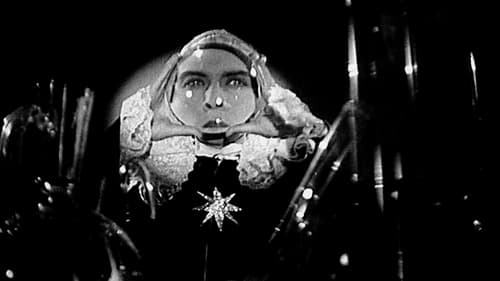
Assistant Director
Paris, France, 1784. After living many tribulations, Joseph Balsamo, known as Count Cagliostro, an infamous adventurer, enigmatic magician and necromancer, experienced physician and ruthless swordsman, triumphs among the members of the decadent French aristocracy. But a bold foretelling about a very prominent noblewoman causes his fall in disgrace… (Partially lost film.)
























